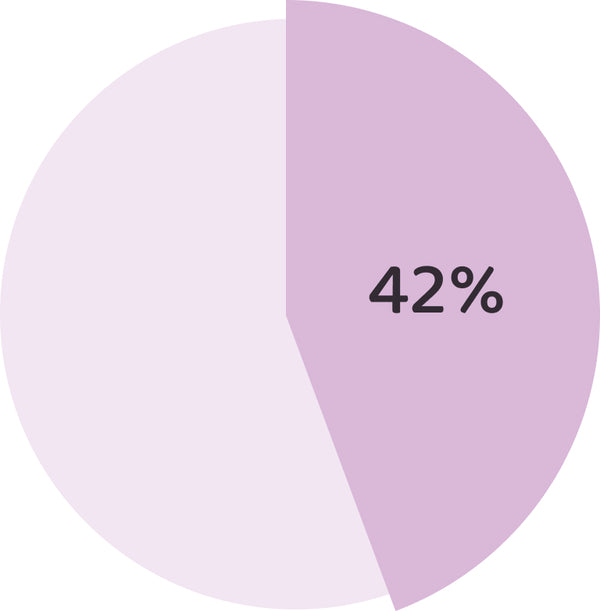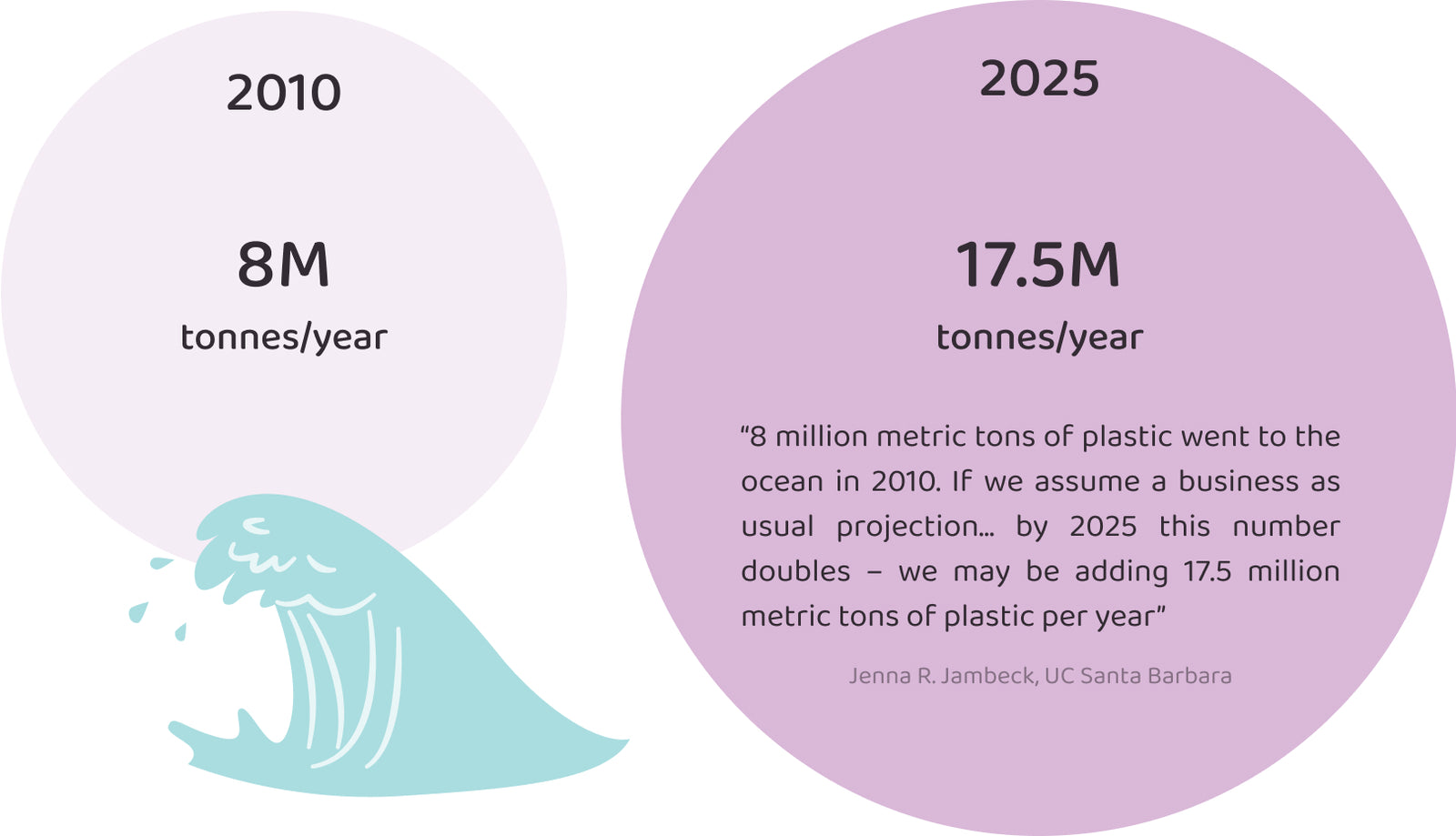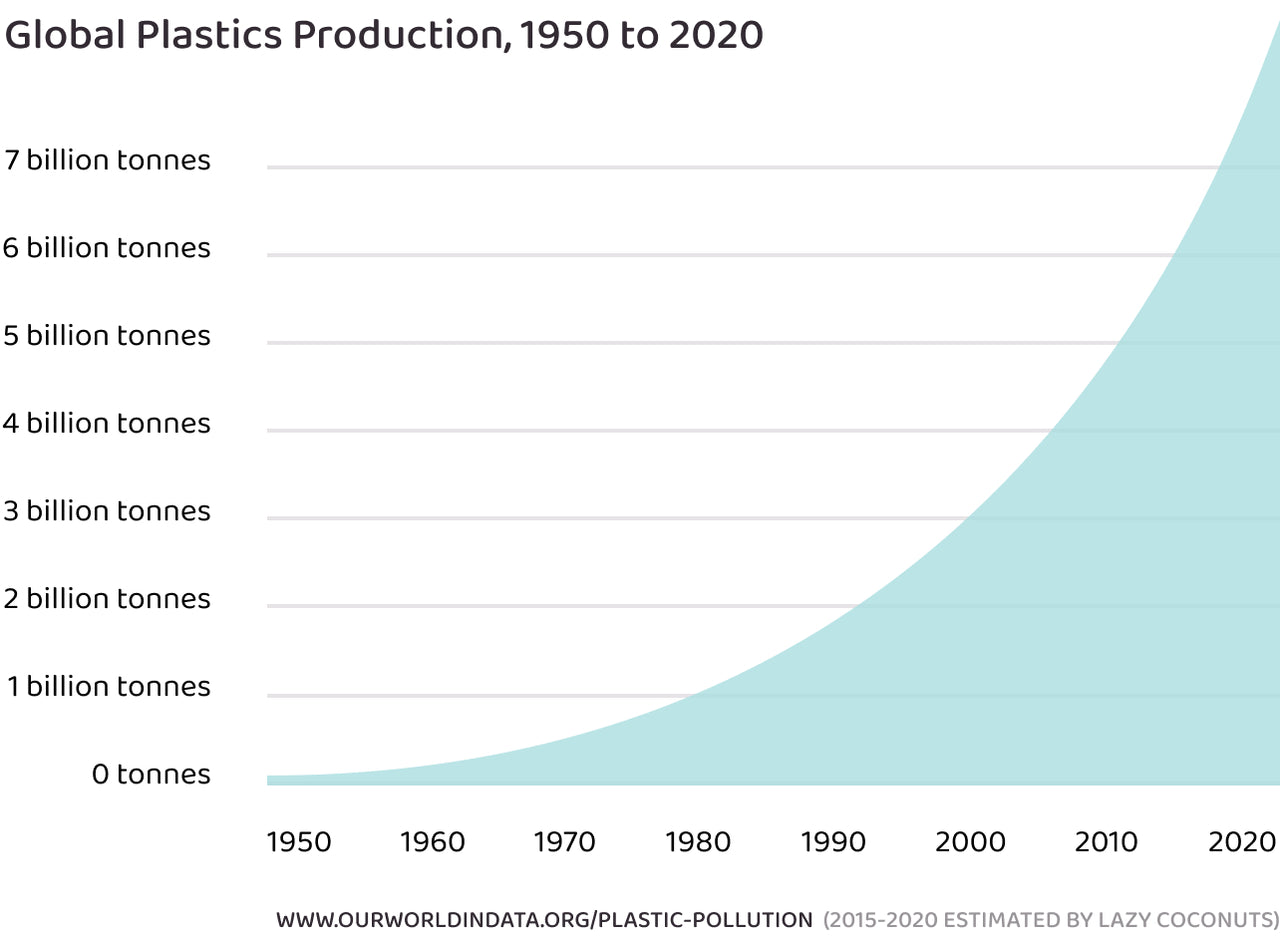
Approximately 42% of all plastics are single-use packaging.
Purchasing products without plastic increases demand for better packaging and forces innovation in packaging.

Plastics affect our health
Bisphenol A (BPA) has been shown in studies to be endocrine disrupting, and cause metabolic syndromes. Other plastics have similar chemical structures and may have adverse health effects too.
www.ncbi.nlm.nih.gov

"Transforming fossil fuel into plastic resins and additives releases carcinogenic and other highly toxic substances into the air."
“Documented effects of exposure to these substances include impairment of the nervous system, reproductive and developmental problems, cancer, leukemia, and genetic impacts like low birth weight. Industry workers and communities neighboring refining facilities are at greatest risk and face both chronic exposures.”
www.ciel.org

Huge Amounts of Plastic Enter the Ocean
Nearly 3% of plastic waste ends up in the ocean, which is like a garbage truck unloading every minute of every day. By 2050 there may be more plastic than fish in the ocean. Plastic in the ocean can enter our water supply or be consumed by animals that we eat.

Half of All Plastic Ever Manufactured was Made After 2000—That’s Exponential
Cleanup is Challening
-
“I am very doubtful about the cost-effectiveness and technical feasibility of large-scale removal. How are we going to remove floating micro-plastics without removing plankton which have the same size and form the base of the food web? How are we going to collect plastics from the ocean floor given that the average depth of the ocean is 14,000 feet?”
Roland Geyer, Jambeck Research Groupjambeck.engr.uga.edu/landplasticinput
-
“We know how to design waste management systems, but waste management is not just a design problem, it is also has social and cultural dimensions.”
Jenna R. Jambeck, Jambeck Research Groupjambeck.engr.uga.edu/landplasticinput
